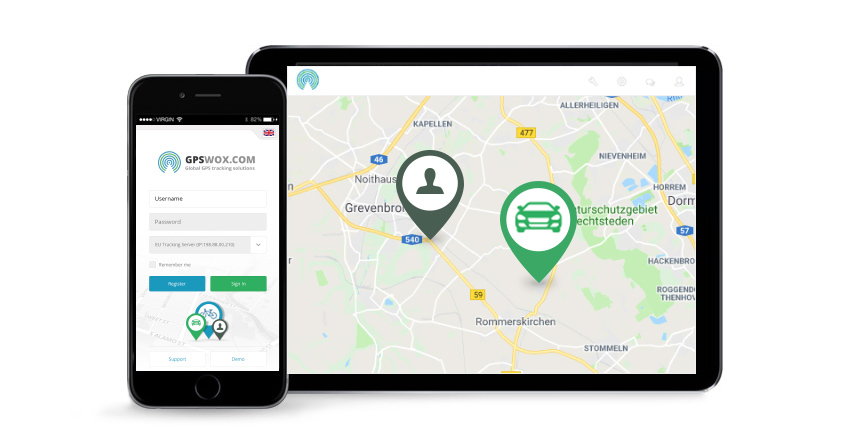Navigating the Future of GPS Monitoring: Developments, Challenges, and Opportunities Ahead
As we stand at the crossroads of societal ramifications and technological developments, the landscape of GPS tracking is poised for a transformative journey ahead. The evolution of GPS innovation has been fast, introducing a brand-new era of real-time monitoring capabilities that promise unmatched degrees of precision and effectiveness. Nevertheless, with great innovation comes wonderful duty, as information personal privacy problems impend large and protection challenges in general practitioner monitoring raising important concerns regarding guarding delicate details. Yet, in the middle of these difficulties lie hidden opportunities waiting to be discovered, supplying a look into the untapped potential of an industry at the brink of adjustment.
Advancement of GPS Modern Technology
Created for army purposes, General practitioner innovation has actually progressed to end up being an ubiquitous device in various fields, including transportation, logistics, agriculture, and personal navigation. Early General practitioner systems were defined by minimal coverage, reduced precision, and bulkier equipment requirements.
One trick landmark in the development of GPS innovation was the growth of Discerning Schedule (SA) in the 1990s, which intentionally weakened the precision of civilian General practitioner signals. As GPS innovation proceeds to evolve, we can anticipate additional renovations in accuracy, coverage, and efficiency, opening up brand-new possibilities for technology and applications across various markets.
Real-Time Monitoring Developments
Structure on the advancements in GPS innovation that have reinvented accuracy and coverage, real-time tracking has actually become a pivotal area of technology with extensive ramifications across various markets. Real-time tracking advancements allow organizations and organizations to monitor possessions, personnel, and vehicles immediately, offering beneficial understandings for decision-making processes - gps tracking. By leveraging real-time data, firms can enhance operational performance, boost customer care, and make certain the safety and protection of their possessions
One of the crucial developments in real-time tracking is the combination of synthetic knowledge and artificial intelligence formulas, which make it possible for anticipating analytics and anomaly detection. These capacities allow for positive maintenance organizing, path optimization, and danger reduction techniques. In addition, the advancement of real-time radar has led to the advancement of mobile applications and personalized control panels, equipping users to access critical information anytime, anywhere.
Information Privacy Problems

Data privacy issues encompass various elements, consisting of the storage space, sharing, and retention of location information. Companies have to carry out robust safety steps to protect general practitioner tracking data from cyber dangers and data breaches. Clear plans concerning information collection methods and the objective of tracking are vital to develop trust with consumers and guarantee conformity with data security laws.
Safety And Security Challenges in GPS Monitoring
Attending to information privacy concerns in GPS tracking is elaborately linked to minimizing the protection tests that arise from prospective susceptabilities in the innovation. One of the key protection obstacles in GPS monitoring is the risk of unapproved access to delicate area information.

Another safety difficulty is the possibility for spoofing or jamming general practitioner signals. By broadcasting incorrect signals or conflicting with legitimate ones, harmful actors can Check Out Your URL deceive GPS receivers and manipulate location information. This postures dangers not only for individual customers however likewise for armed forces and governmental applications that rely upon precise positioning details. Applying robust file encryption, verification procedures, and signal confirmation protocols are vital actions in resolving these safety difficulties in GPS tracking.
Emerging Opportunities in the Sector
The growing field of GPS monitoring innovation presents a myriad of appealing possibilities for industry development and development. One crucial possibility exists in the expansion of GPS tracking applications beyond standard markets. GPS monitoring can change person treatment by making it possible for remote tracking of important signs and ensuring timely medical support.
Furthermore, the raising demand for linked tools and IoT services provides a ripe chance for GPS tracking business to expand their offerings and develop ingenious solutions that provide to an extra connected world. By utilizing on these emerging chances, GPS monitoring companies can position themselves for sustained growth and success in the dynamic landscape of the industry.
Conclusion
To conclude, the future of GPS monitoring is noted by constant development and development in modern technology. Real-time tracking developments and arising opportunities present promising prospects for the sector. Information personal privacy problems and safety and security difficulties continue to be considerable difficulties that require to be addressed. As the sector progresses, browsing these challenges will be essential to make certain the continued development and success of general practitioner tracking modern technology.
With excellent technology comes terrific responsibility, as information personal privacy worries impend big and safety and security difficulties in General practitioner monitoring raising relevant questions about guarding delicate info.With the rapid expansion of GPS monitoring innovation in various industries, attending to check data personal privacy problems has actually come to be a vital essential for both customers and businesses alike. The collection of location data via General practitioner monitoring increases considerable personal privacy concerns, as it makes it possible for the surveillance of individuals' behaviors and movements. Companies utilizing GPS monitoring need to prioritize guarding this data to avoid unapproved gain access to or abuse that can compromise individuals' privacy civil liberties.
Businesses need to apply robust security procedures to protect GPS monitoring data from cyber threats and information breaches.